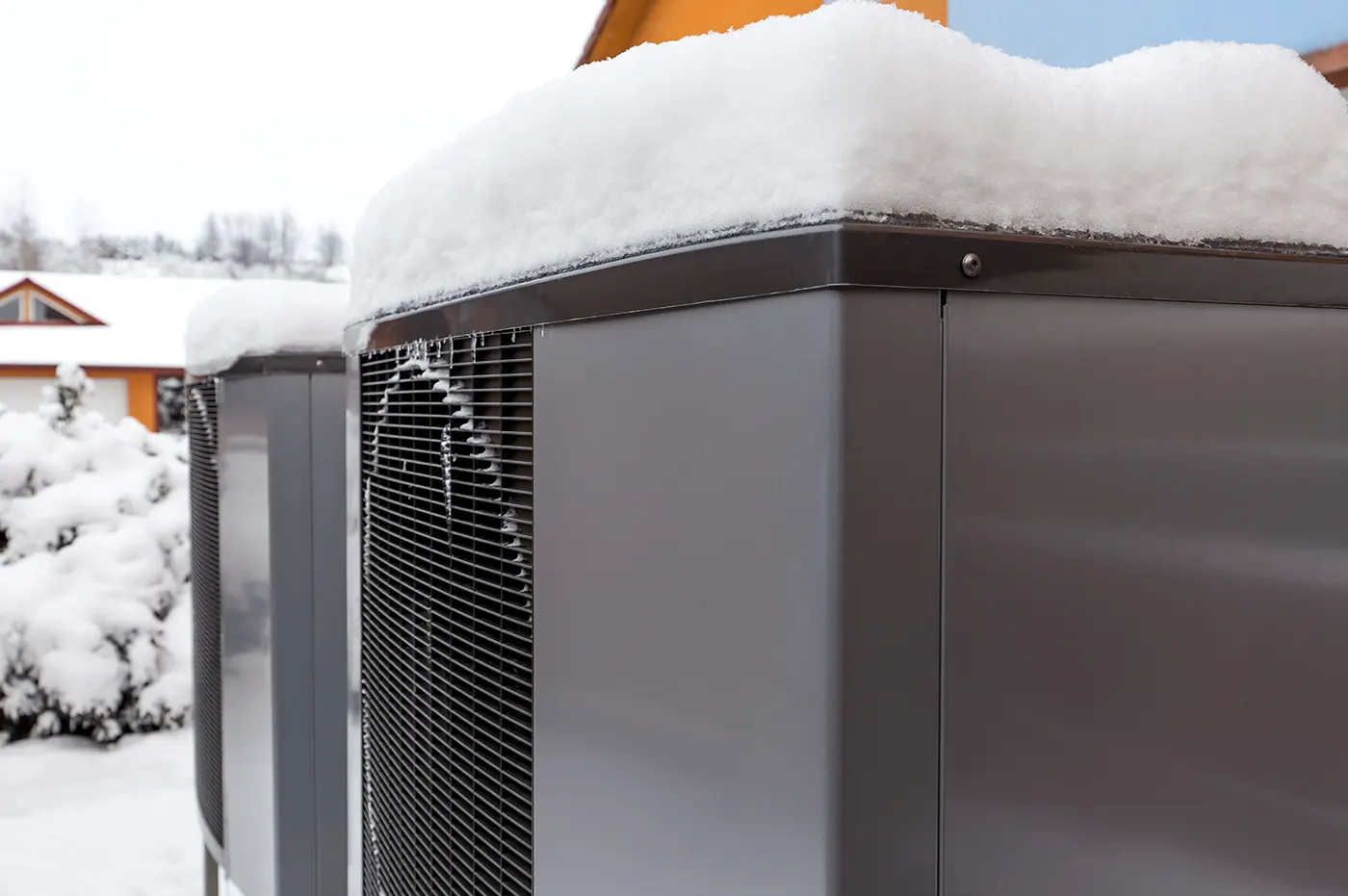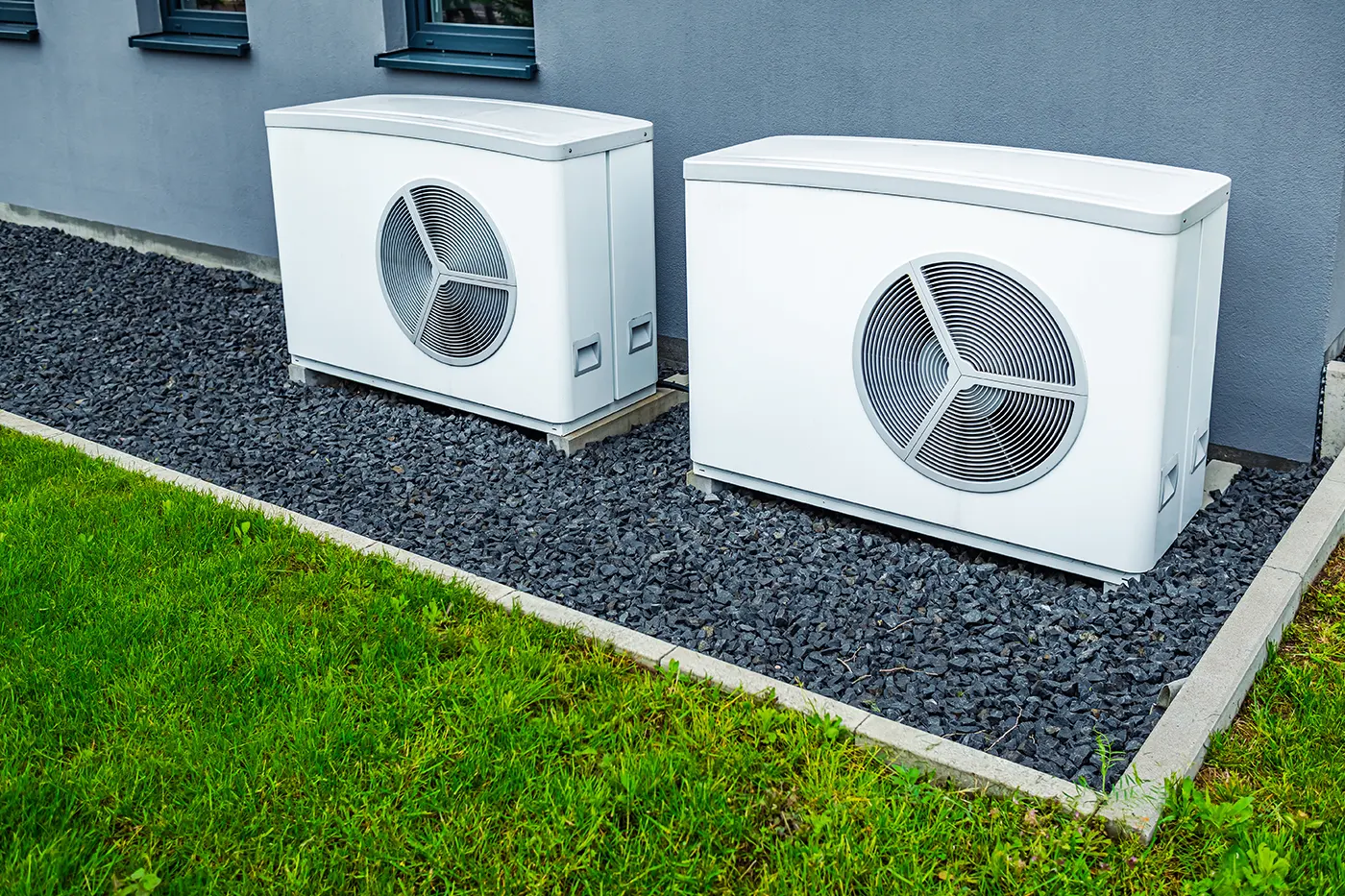
5 Common Signs It’s Time for an Electrical Panel Upgrade
January 8, 2025
What to Do If Your Hot Tub Isn’t Heating Properly
February 7, 2025
5 Common Signs It’s Time for an Electrical Panel Upgrade
January 8, 2025
What to Do If Your Hot Tub Isn’t Heating Properly
February 7, 2025A Guide for Choosing the Best Heat Pump for Your Home


Selecting the best heat pump is a smart way to make your home more eco-friendly and energy-efficient. These systems provide reliable heating and cooling year-round while helping you save on energy bills. As a key innovation in the HVAC industry, modern heat pumps combine advanced features with impressive efficiency ratings to keep your home comfortable in any climate. This guide breaks down everything you need to know to make the right choice for your home.
How Heat Pumps Work
Heat pumps move heat around using refrigerant. In winter, they pull heat from outside and bring it inside; in summer, they reverse the process to cool your home. It’s a simple yet efficient setup that’s become a game-changer in the HVAC industry.
There are two main types of heat pumps: Air Source and Ground Source
Air Source Heat Pumps
These are the most common and work by transferring heat between the air outside and your home. They’re efficient heat pumps for most climates and have significantly improved their performance for colder weather.
Ground Source Heat Pumps (Geothermal)
These use the ground to transfer heat and are known for their top-notch energy savings. While they cost more upfront and need more installation work, the long-term energy cost savings make them a solid investment, especially in extreme climates.
What to Consider When Choosing a Heat Pump System
Choosing the right heat pump is about more than just picking a model. Here’s what to keep in mind:
Size and Capacity
Get the sizing right. A system that’s too small won’t heat or cool effectively, while one that’s too big wastes energy and ramps up energy costs. An HVAC professional can calculate the ideal size based on your home’s layout, insulation, and local climate.
Efficiency Ratings
One of the main reasons homeowners choose heat pumps is for energy savings. Look for models with high-efficiency ratings, such as the SEER (Seasonal Energy Efficiency Ratio) and HSPF (Heating Seasonal Performance Factor) ratings. SEER measures cooling efficiency, while HSPF measures heating efficiency. The higher these ratings are, the more efficient the heat pump is, which translates to lower utility bills and less environmental impact.
Climate Considerations
It’s important to take into account the climate of where you live. Some types of heat pumps are better equipped for mild climates, and some places require cold-climate heat pumps. If you live in a colder climate, a ground source heat pump (geothermal) might be a good choice, offering consistent heating even in extreme temperatures. Air-source heat pumps are a great option for milder climates and have improved significantly in colder weather. When selecting a system, ensure it can meet your home’s heating needs throughout the year, regardless of the temperature.
Installation Requirements
Air source heat pumps are easier and cheaper to install. Ground source systems require more work but deliver better energy savings in the long run. Consider your budget and how quickly you want to see returns on your investment.

Features That Make a Difference
Modern heat pumps come loaded with advanced features. Here’s what to prioritize:
Variable Speed Compressors
These adjust output based on your home’s heating or cooling needs, improving efficiency and lowering energy costs. Plus, they reduce wear and tear, giving you peace of mind about your system’s longevity.
Noise Levels
No one wants a noisy HVAC system. Look for a heat pump with quiet operation—low decibel ratings are your friend.
Smart Features
A modern heat pump often integrates with smart thermostats or home automation systems, letting you control your HVAC system remotely and optimize energy use.
Durability and Warranty
Choose a reliable brand with a solid warranty. A well-built heat pump system means fewer headaches and better long-term performance.
Finding the Best Heat Pump Brands
Not all heat pump brands are equal. Here are a few worth checking out:
- Carrier: Known for efficient heat pumps with advanced features and reliable performance.
- Trane: Offers durable systems with variable speed compressors and great energy savings.
- Lennox: Specializes in top-tier SEER and HSPF ratings, perfect for cutting down energy costs.
Read reviews and compare features to find the best fit for your needs and budget.
Installation and Maintenance Tips
Proper installation is key to getting the most out of your heat pump system. Always hire a professional for heat pump installations to ensure everything is set up correctly. A poorly installed system can lead to reduced performance and higher energy costs.
Once your heat pump is up and running, regular maintenance is essential to keep it working smoothly. Check and replace filters, clean the outdoor unit, and schedule annual professional inspections to ensure your system is operating at peak efficiency.
Making the Right Heat Pump Choice for Your Home
Choosing an eco-friendly heating and cooling system like a heat pump is a smart move. By focusing on size, efficiency ratings, and features like variable speed compressors, you can lower energy costs and enjoy a comfortable home year-round.
For expert guidance on choosing and installing the best heat pump for your home, contact us today and let our team help you find the perfect solution.
